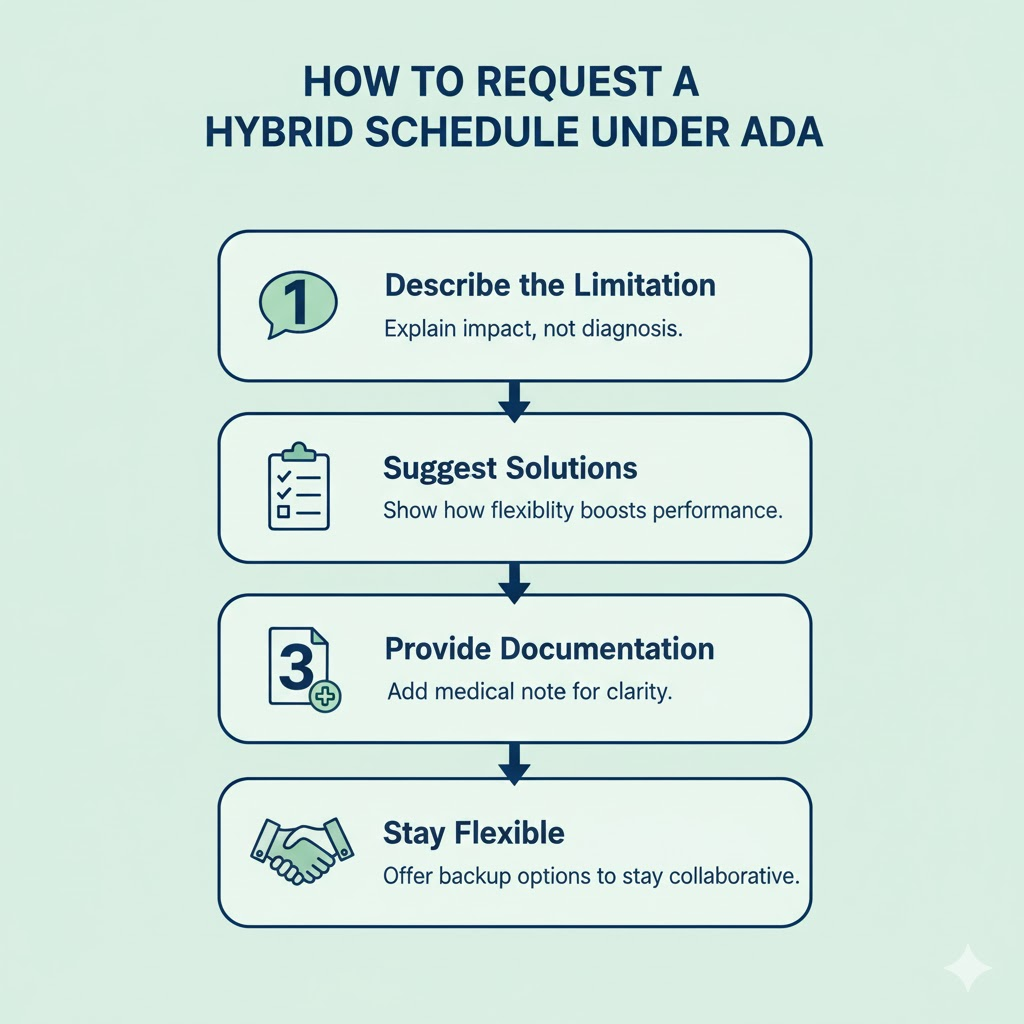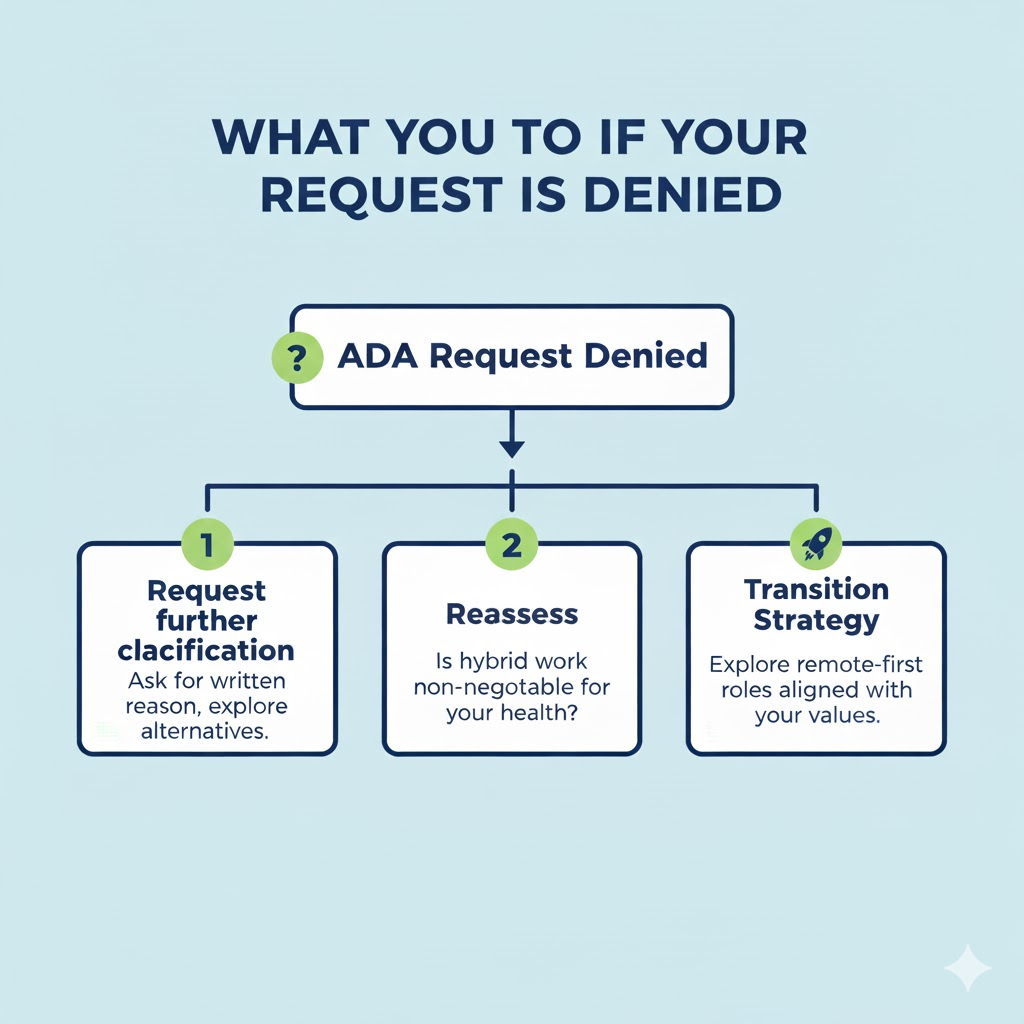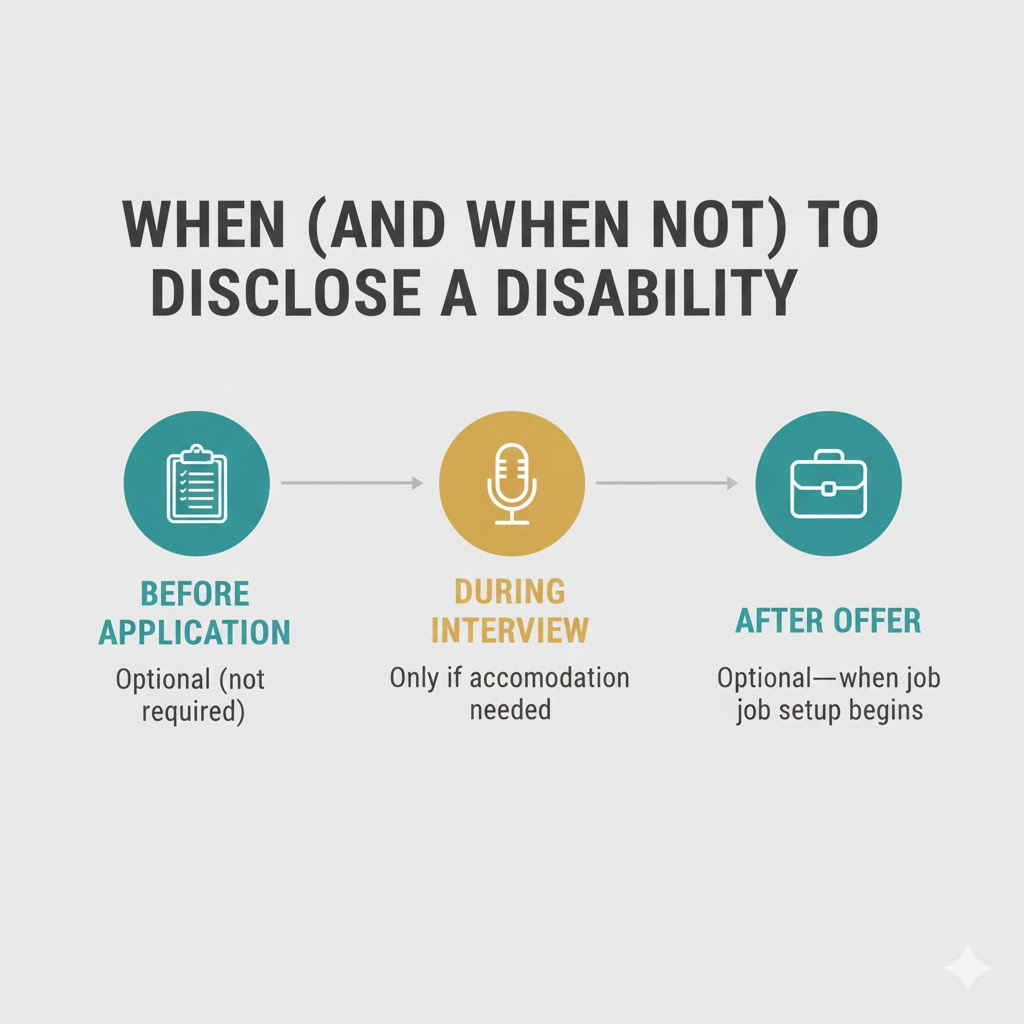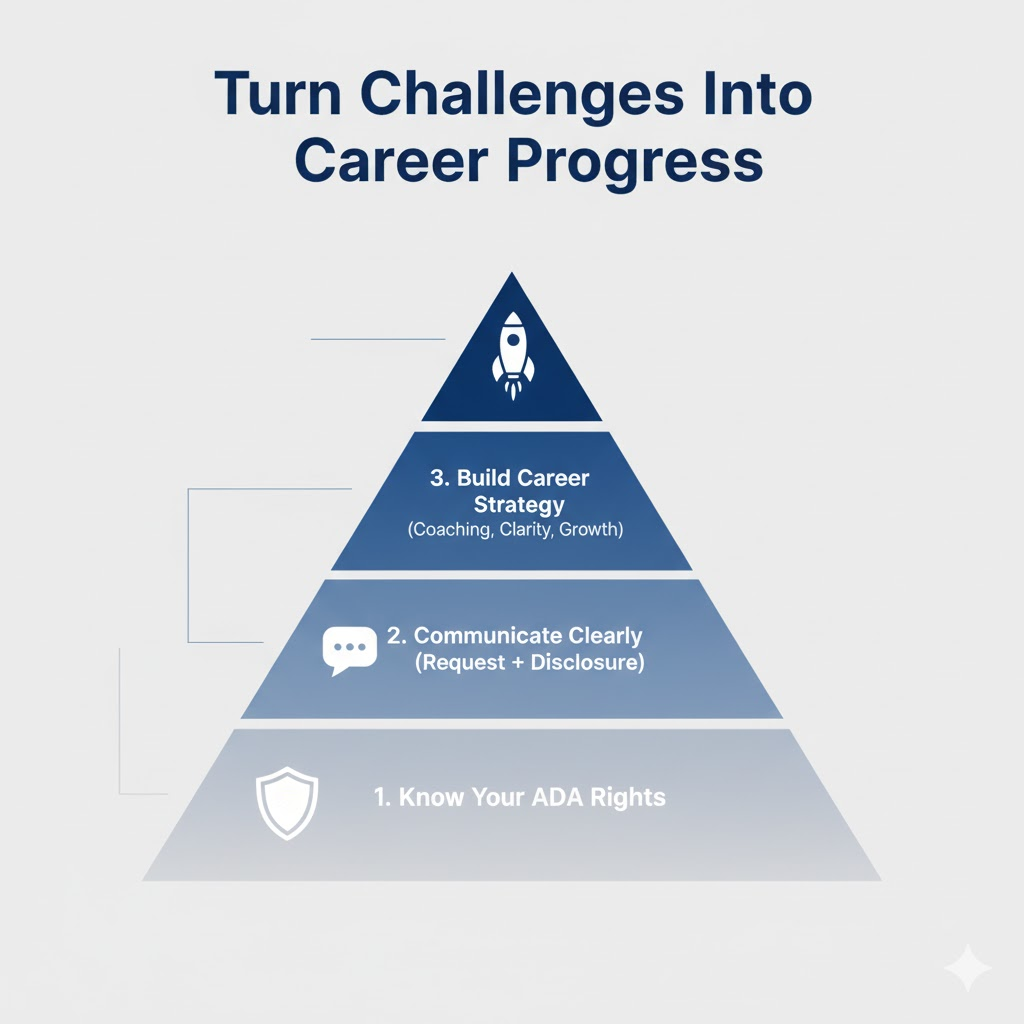

Hybrid Work Policies & ADA Rights: What Employees Should Know
Employees with disabilities can navigate hybrid policies with clarity — know your rights, request accommodations, and learn to thrive in your career.

Employees with disabilities can navigate hybrid policies with clarity — know your rights, request accommodations, and learn to thrive in your career.
By the end, you’ll understand:
Hybrid work isn’t just a perk anymore—it’s shaping how careers are built across the U.S. For many professionals, hybrid schedules offer flexibility and balance. But for employees managing a disability, these policies often raise much bigger questions:
Let’s map this out.
No fluff. No fortune-cookie advice.
The Americans with Disabilities Act (ADA) requires U.S. employers to provide “reasonable accommodations” for qualified employees with disabilities.
That can absolutely include hybrid or remote work—but it isn’t a blanket guarantee.
Each request must be evaluated individually, and employers have responsibilities they cannot skip:
This framework empowers employees, but it also places responsibility on them to articulate their needs clearly.
In other words, the law gives you a foundation, but your strategy builds the structure.
Understanding ADA is step one.
Step two? Turning those rights into a real career plan.
👉 Our Career Clarity Coaching helps you move from legal knowledge to practical strategy.

Approaching HR with an accommodation request can feel intimidating—like walking into a room where the power balance isn’t in your favor.
But clarity changes everything.
Here’s how to set yourself up for a constructive conversation:
Making the request is about more than compliance—it’s about advocating with confidence. And that skill has ripple effects: the same way you frame your accommodation request is the way you’ll frame your value on résumés, LinkedIn, and interviews.
The professionals who learn to advocate clearly often rise faster in their careers because they’ve practiced the art of clarity.
The right words matter.
Want a safe space to practice before you talk to HR? That’s exactly what coaching is for.
👉 Work with a personal career counselor to feel confident and clear.

Here’s the hard truth: sometimes, even after a good-faith request, the answer is still “no.”
That doesn’t mean you’ve hit a dead end. It may mean you’re standing at a career pivot point.
However, the good news is that many organizations are leaning into remote-first cultures. They’re actively seeking professionals who thrive outside the traditional office.
If your current role feels unsustainable, you may be exactly who another company is hoping to hire.
But transitions take strategy:
For mid-senior pros, this might mean protecting your reputation while plotting the next step.
For new grads, it’s about building credibility from day one.
For HR leaders, it’s about shaping workplaces where accommodation isn’t an exception but part of the culture.
Career coaching can help untangle these questions in a safe, private space.
Think of it less as “starting over” and more as “aligning your ambition with your reality.”

Even once you’ve found the right roles, another question pops up: Should I disclose my disability in interviews?
The ADA gives you rights here, too, but the decision is nuanced.
Here’s the breakdown:
The key is framing:
Example script: “I manage [condition], which means standard back-to-back interviews are difficult. With a short break between sessions, I’m able to stay fully engaged and give you my best.”
Practicing this script builds confidence.
Mock interviews help you sound polished, natural, and professional—never apologetic or defensive.
Remember: you’re not asking for special treatment; you’re showing how you’ll excel when given the right setup.
Not sure how to phrase your disclosure? We’ll help you practice until it feels confident, natural, and professional.
👉 Our FutureEdge Interview private coaching for interview Prep gives you the words, tone, and presence to stand out.

Hybrid work blurred the old rules of office life.
ADA rights make sure those changes don’t erase accessibility.
But knowing the law is only half the story—the other half is building a career path that feels sustainable, empowering, and future-ready.
Turn Your ADA Challenges Into Career Momentum!
Whether you’re requesting accommodations, planning a transition, or preparing for interviews, we help you every step of the way.
Get support with:
You’ve got this—and we’ve got you.

Yes. If remote or hybrid work enables you to perform essential job functions, it can qualify as a reasonable accommodation. Employers must review each request individually under ADA guidelines.
You don’t need to share your diagnosis in detail. Focus on describing how your condition impacts your ability to follow standard policies and what adjustment helps you perform effectively.
Employers can only deny if they prove “undue hardship” (significant difficulty or expense). If you believe the denial is unfair, you may consult legal resources or consider career transitions into remote-first organizations.
No. Disclosure is optional unless you need an accommodation during the hiring process (e.g., extra time for an assessment). Many employees choose to disclose after receiving an offer.
You don’t have to figure it out alone. Professional coaching helps you structure your request, refine your message, and practice until you feel confident.


